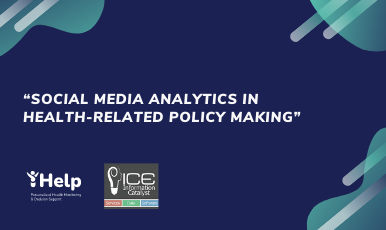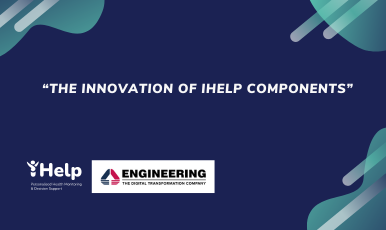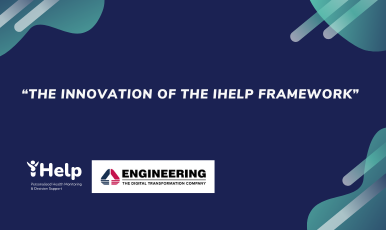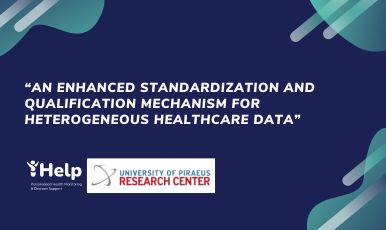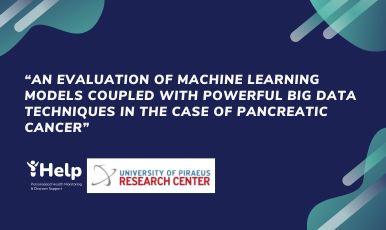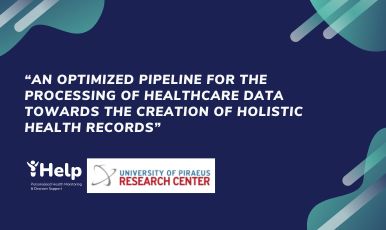Social media analytics is about gathering data from social media platforms (such as Facebook, Instagram, LinkedIn, Twitter, etc) and analysing it to draw meaningful insight or actionable conclusions. The analysis of social media data can serve several purposes e.g., it can inform companies about the popularity of their products, it can inform about the current trends in the general population or it can inform policy makers about public opinion on certain policies. By leveraging the capability to extract valuable insights from vast amounts of unstructured social media data, a robust social media analytic solution can support informed and insightful decision making for different types of users.
The iHelp project provides a holistic framework for personalised healthcare that enables the collection, integration, and analysis of health-related data from various sources in a standardised way. The analysis of health-related data is used to provide decision support to all stakeholders in the value chain, including medical experts and also policy makers. In particular, the decision support to policy makers should support the development of new health are care pathways, design of new counter measures for emerging health-related trends, and early analysis of specific policies/guidelines. This is where a social media analysis solution can play a vital role by connecting the policy makers with the target audience.
In this background, the Social Analyser component in the iHelp platform is designed to analyse discussions taking place on the social media platforms and provide insight into the lifestyle trends, mental models, emotions, social interactions, and societal influences on the individuals who either have developed the Cancer or are in the early stage of risk identification. This type of information about social aspects is important for not only clinicians, patients but also to policy makers who will be able to perform evaluations and optimisation of health or treatment related policies.
The iHelp Social Analyser component will use Complex Event Processing (CEP) techniques, in addition to the state-of-the-art Natural Language Processing (NLP), Sentiment Network Analysis (SNA), and AI technologies to provide a complete toolkit for clinicians and policy makers; allowing them to collect, process and visualize Cancer related information exchanged on the social media platforms. In this respect, the objectives are:
- To develop a robust solution for the real-time analysis of social data concerning specific topics of interest
- To support efficient monitoring, alerting, and feedback gathering regarding specific recommendations/policies and health related topics
- To integrate social media analysis data with other healthcare data in the iHelp platform
- To present the social media analysis in such a way that allows policy makers to analyse the general healthcare trends as well as the impact of specific recommendations/policies
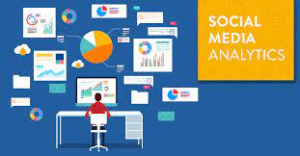 Many analytic solutions often provide a snapshot of social media analysis on a topic once and then call it good. However, social media platforms are always in a state of flux, so there are always new events occurring and situations (as a sequence of interrelated events) developing. The social media analysis solution in the iHelp project will continuously monitor the social media space to track conversational fluctuations that can shape up trends and/or provide insightful feedback over time. Some of the interesting metrics for social media analysis that can address the policy maker’s aspect in the iHelp platform are:
Many analytic solutions often provide a snapshot of social media analysis on a topic once and then call it good. However, social media platforms are always in a state of flux, so there are always new events occurring and situations (as a sequence of interrelated events) developing. The social media analysis solution in the iHelp project will continuously monitor the social media space to track conversational fluctuations that can shape up trends and/or provide insightful feedback over time. Some of the interesting metrics for social media analysis that can address the policy maker’s aspect in the iHelp platform are:
- Volume of mentions e.g., how many times specific topics are mentioned in a predefined time
- Sentiment e.g., what users feel (positive or negative) about specific topics
- Reach e.g., what is the reach of social vs non-social user engagement strategies and how users react to the social media content
- Share of voice e.g., who are the most active users in a specific discussion
Since the iHelp project started in January 2021, the actual development of the Social Analyser component has recently started in Spring 2021.
Latest updates about the iHelp Social Analyser component will be released through the iHelp website … stay tuned!

